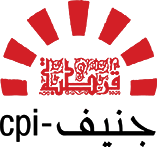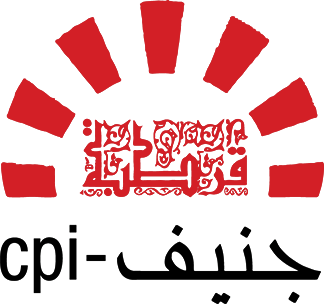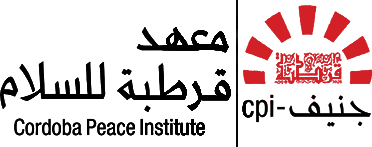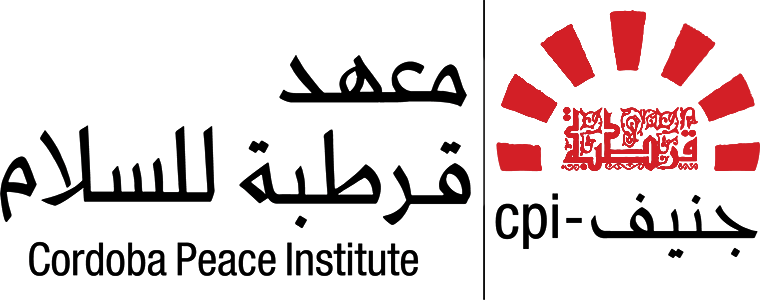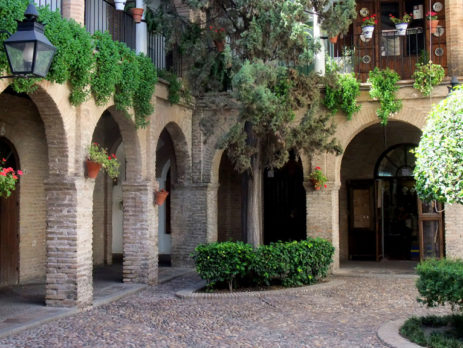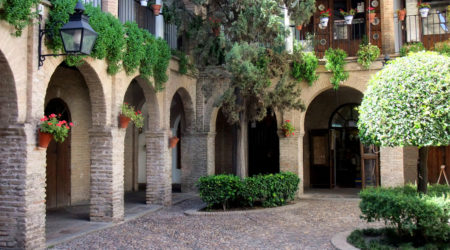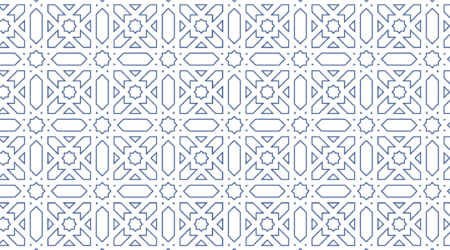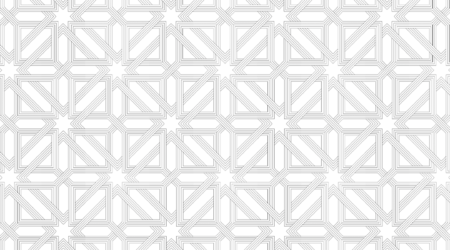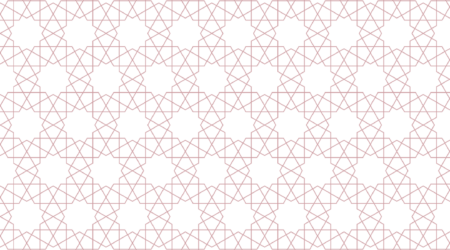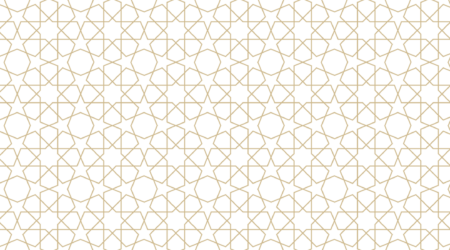The Cordoba Update 3/2017
|
The bi-weekly CORDOBA UPDATE is the product of continuous monitoring work, carried out by the Cordoba Foundation of Geneva team. By analysing and reporting on key events and trends in the Foundation’s areas of interest, we aim to draw readers’ attention to pertinent developments in North Africa, the Sahel, West Asia and Europe, which are not always covered in ‘mainstream’ media. In addition to sharing news from these four regions, the Cordoba Update is an opportunity for the Foundation to provide regular updates on its publications, events and other developments. In line with the programmes and projects funded by partners of the Cordoba Foundation of Geneva, updates and information are included under the following themes:
For questions and/or feedback regarding the content and form of the Cordoba Update, please contact Sarah Franck: sarah.franck@cordoue.ch Le CORDOBA UPDATE est un bimensuel qui présente le travail continu de suivi réalisé par l’équipe de la Fondation Cordoue de Genève. Par l’analyse des événements et tendances qui concernent les domaines d’intérêt de la Fondation, nous visons à attirer l’attention de nos lecteurs sur les développements pertinents en Afrique du Nord, dans le Sahel, en Asie de l’Ouest et en Europe, une actualité qui n’est pas toujours couverte dans les médias dits ‘traditionnels’. Outre le partage de l’actualité de ces quatre régions, le « Cordoba Update » est un moyen pour la Fondation de fournir des mises à jour régulières sur ses publications, événements et autres développements. En accord avec les programmes et projets financés par les partenaires de la Fondation Cordoue de Genève, les mises à jour et informations concernent les thèmes suivants :
Pour des questions et / ou des commentaires concernant le contenu et la forme du Cordoba Update, veuillez contacter Sarah Franck : sarah.franck@cordoue.ch |
ISLAMIST-SECULAR RELATIONS / RELATIONS ENTRE SÉCULIERS ET ISLAMISTES
Mauritanie, 31.01.17 : retour à la case départ dans l’affaire du bloggeur accusé d’apostasie
L’affaire du jeune blogueur Mohamed Cheikh Ould M’Khaitir continue de défrayer la chronique en Mauritanie. Alors que certains groupes séculiers mobilisent fortement pour l’exécution de la peine de mort prononcée contre le blogueur en 2014, l’Etat et la justice ne semblent pas être pressés d’aller au bout de cette affaire.
Après beaucoup de va-et-vient entre les différentes institutions judiciaires, le dossier du jeune condamné à mort avait atterri devant la Cour suprême. Celle-ci devait trancher, en dernier ressort, si le repentir que l’accusé avait prononcé devant la Cour d’appel était valide ou non, sachant que ce repentir avait amené les juges de la Cour d’appel à requalifier son accusation « d’apostasie » à « mécréance ». La Cour suprême, sans se prononcer sur le fond de l’affaire, a statué le 31 janvier 2017 que M. M’khaitir devra être jugé de nouveau en appel, par une composition différente de la première.
Pour accentuer la pression, la quasi-totalité des Oulémas mauritaniens avaient soutenu qu’en cas d’apostasie, le repentir n’affranchit pas de la peine de mort. Une manifestation géante rassemblant plus de 100.000 personnes avait été organisée pour réclamer la mise à mort du blogueur au moment où la Cour suprême se penchait sur le dossier.
Cette position d’unanimité des Oulémas a récemment été mise à rude épreuve par à un cas de « repentir accepté ». Elatigh Ould Abba, jeune mauritanien vivant aux Etats-Unis et qui aurait publié des articles très acerbes et des critiques directes et sévères contre l’Islam et ses symboles, dont les prophètes, avait en effet été condamné pour les mêmes motifs. Selon les blogueurs, ces posts avaient suscité en 2013 des réactions de désapprobations mitigées sur les réseaux sociaux au niveau local. Certains Oulémas ont été par la suite accusés d’avoir « ignoré sa mécréance », du fait qu’il soit issu d’une famille Zouaya (marabout, de caste jugée socialement supérieure en Mauritanie), alors que Ould M’Khaitir est, lui, M’Alem (forgeron, de caste jugée inférieure en Mauritanie).
De son côté, le Sénateur de Mbout (sud) Youssouf Tidiany Sylla demande la libération de Mohamed Cheikh Ould M’Khaitir. Pour cet élu, le seul qui ait osé s’afficher publiquement aux côtés du blogueur détenu, « ce jeune qui s’est repenti, doit, conformément à la loi, conformément à l’Islam, être libéré ». Selon lui, la justice a été « prise en otage par la pression populaire » dans l’affaire M’Khaitir. Il ajouta en outre que si cette justice cède, ça sera un « précédent dangereux » pour l’Etat de droit.
Liens pour plus d’informations :
http://www.cridem.org/C_Info.php?article=694684
http://www.cridem.org/C_Info.php?article=665344
http://www.ibtimes.co.uk/who-mohamed-cheikh-ould-mkhaitir
http://cridem.org/C_Info.php?article=694436
http://www.peinedemort.org/document/9301/Mauritanie_Cour_supreme
http://www.gps.mr/index.php?option=com_content&view=article&id=5068
TRANSITION AND POLITICAL PARTICIPATION / TRANSITION ET PARTICIPATION POLITIQUE
Mali, 18.02.17 : La mise en place des autorités intérimaires bloquée par la CMA
L’installation des autorités intérimaires dans le Nord du Mali, prévue par l’accord de paix de 2015 et qui devait débuter samedi 18 février 2017 à Kidal, bastion de l’ex-rébellion, a été reportée après une contestation des nominations approuvées par le gouvernement.
Les présidents des autorités intérimaires des cinq régions de Kidal, Gao, Tombouctou, Ménaka et Taoudénit avaient en effet été désignés par le gouvernement le 17 février 2017 et leur installation devait débuter à Kidal le 18 février dernier. Ainsi, la voie semblait libre pour l’investiture d’Hassan Ag Fagaga, membre de la Coordination des mouvements de l’Azawad (CMA, ex-rébellion), désigné unanimement par les membres signataires de l’accord d’Alger comme président du Conseil intérimaire de Kidal le mercredi 15 février. Or, le décret du conseil des ministres publié tard vendredi soir a suscité les réserves de la CMA. En effet, contrairement à toute attente, le gouvernement a nommé un nouveau gouverneur pour Kidal. Il s’agit de Sidi Mohamed Ag Ichrach, inspecteur des douanes, issu de la tribu touarègue des Imghad (rivale des Ifoghas, maîtres de Kidal) et proche des Gatia (Pro-Bamako).
Ainsi, une source au ministère malien de l’Administration territoriale a déclaré à l’AFP que par souci d’apaisement, le gouvernement malien a décidé de reporter les cérémonies d’installation des autorités intérimaires dans les régions du Nord . Les « manifestations hostiles dans certaines localités du Nord causées par l’installation des autorités intérimaires » ont été évoquées comme la principale raison du report de cette installation par cette même source ministérielle.
En vertu de l’accord de paix signé en mai-juin 2015, les autorités intérimaires devront gérer les cinq régions concernées en attendant l’élection par la population d’Assemblées, qui seront-elles-mêmes dotées de pouvoirs importants. Leur mission sera notamment de préparer ces élections et de favoriser le retour des déplacés. Les patrouilles mixtes entre militaires maliens, combattants des groupes pro-gouvernementaux et de l’ex-rébellion, sont censées préfigurer la refonte d’une armée malienne unitaire.
Liens pour plus d’informations :
http://www.maliweb.net/la-situation-politique-et-securitaire-au-nord/nord-mali-nouveau
http://maliactu.net/nord-du-mali-nouveau-report-de-linstallation-des-autorites-interimaires
http://malijet.com/actualte_dans_les_regions_du_mali/rebellion_au_nord_du_mali/178159
http://www.zahraa.mr/node/11106
http://malijet.com/actualte_dans_les_regions_du_mali/rebellion_au_nord_du_mali/178165
http://maliactu.net/gao-la-cma-et-la-plateforme-nont-aucune-legitimite-historique-et-geographique
http://mali7.net/2017/02/19/repartition-des-autorites-interimaires-letat-malien-se-fait-rouler
http://maliactu.net/mali-nouvelles-tensions-entre-les-groupes-armes-signataires-de-laccord-de-paix
http://www.maliweb.net/la-situation-politique-et-securitaire-au-nord/processus-de-paix
http://news.abamako.com/h/153122.html
Egypt, 16-19.02.2017: ISIS Releases Video Threatening Egypt’s Christians, Showing Church Bomber
The Islamic State released a video on Sunday, 19 February 2017, featuring a statement by the man they allege is responsible for the attack on the St. Peter and St. Paul Church in Cairo last December, which killed at least 28 people. The group claimed responsibility for the December 11 bombing two days after it was carried out, but doubts were initially raised about the veracity of these claims. The video features a voice-over claiming that a man named Abou Abdallah al-Masry detonated an explosive belt inside the Church, which is consistent with the statement issued by the Islamic State two days after the attack which named Masry as the attacker.
Meanwhile, Egypt’s Cabinet announced a decision to ban motorbikes from several areas in central and north Sinai for a year. The move is part of a wider strategy to restrict movement in the peninsula, particularly North Sinai, where security forces have been engaged in armed conflict with militants since 2013. The ban, which was issued on February 16 and made public a couple of days later, includes three of North Sinai’s major cities: Arish, Sheikh Zuwayed and Rafah, which have the highest number of militia groups operating in them.
In addition, the Egyptian government has intensified efforts in the last six months to bolster its ability to intercept and monitor messages and data sent over the internet, interfering with the digital security tools that facilitate secure communication channels. While there is a history of the Egyptian government breaching private security, something new may be on the horizon.
Finally, Egypt’s court of cassation issued a final verdict for 10 defendants over murder-related charges in the 2012 Port Said stadium massacre, which took the lives of over 70 football fans, upholding a June 2015 death sentence. After protracted legal procedures and a long appeal process, in June 2015 a lower Egyptian court sentenced 11 people to death, including one in absentia, in a retrial of the case after receiving the Grand Mufti’s opinion on the verdict. The 2015 verdicts were appealed automatically by the prosecution, in accordance with Egyptian law on death sentences. In the final trial, the defendants were found guilty on charges of premeditated murder and attempted murder of Egypt’s Ahly Club football fans, thuggery, vandalism and theft. In the same case, another ten defendants received 15-year sentences, 15 received 10 year sentences, and 15 others received five year sentences. One defendant received a one year sentence. Twenty-one defendants were acquitted.
Links for more information:
http://english.ahram.org.eg/NewsContent/1/64/258444/Egypt/Politics-/Egypts-PM-bans-motorcycles
http://www.madamasr.com/en/2017/02/20/news/u/islamic-state-releases-video
http://www.madamasr.com/en/2017/02/10/feature/politics/infinite-eyes-in-the-network-government
http://english.ahram.org.eg/NewsContent/1/64/258539/Egypt/Politics-/Egypt-court
Bahrain, 07.02– 15.02.2017: Protestors Mark ‘Arab Spring’ Uprisings, Mourn the Deaths of Three People.
Protestors were seen on the streets of Bahrain on 14 February, commemorating the six-year anniversary of the ‘Arab Spring’ uprising. According to media reports, protesters were observed holding pictures of those who were killed during the clashes in 2011 and in subsequent years, while others were heard chanting slogans reminiscent of the 2011 uprising. According to The New Arab, policemen fired tear gas and stun grenades to prevent people from accessing the main road into the Bahraini capital, Manama. Social media accounts reported a number of injuries sustained by demonstrators, however these reports were not confirmed by the Bahraini Interior Ministry.
In another incident, two people were injured by what the Interior Ministry called a “terrorist blast,” however no further details were given and it is unclear whether this event was related to the commemorative protests taking place across the island.
On 15 February, witnesses reported hundreds of people on the streets of the Bahraini village of Bani Jamra, shouting anti-regime slogans. According to reports, more demonstrators clashed with police in Bahrain’s capital Manama on the same day, after mourners gathered for three people who were killed on 9 February, while allegedly attempting to flee the country for Iran. According to the Interior Ministry, the three were either prisoners who escaped in the 1 January storming of Jaw prison or their accomplices.
The Bahrain News Agency reported that the Arab Parliament, based in Cairo, voiced its “unwavering support to the Kingdom of Bahrain, backing all measures to maintain its security and stability and protect its territories,” adding that “the pan-Arab panel commended the success of Bahrain’s security forces in thwarting the attempt to smuggle a number of terror-related fugitives.”
Links for more information:
https://www.alaraby.co.uk/english/news/2017/2/14/clashes-erupt-as-bahrain-protesters
https://www.middleeastmonitor.com/20170215-man-and-wife-injured
https://twitter.com/moi_bahrain/status/831590565187874817
https://www.middleeastmonitor.com/20170209
http://www.bna.bh/portal/en/news/770627
Video: https://youtu.be/D5Y1mZeqXbkالبحرين: احباط عملية تهريب مطلوبين
https://www.alaraby.co.uk/english/news/2017/2/16/bahrain-mourners-clash
Iraq, 08.02-14.02.2017: Violent Protests in Baghdad Green Zone over Iraqi Electoral Reform
Supporters of the Iraqi religious leader, Muqtada al Sadr, demonstrated in Baghdad on 8 February, demanding electoral reform ahead of provincial elections expected in September 2017. These protests mark the latest in a long series of demands for political reform, carried out by al Sadr’s supporters, in and around the capital’s diplomatic area, in the Green Zone. Demonstrators were reportedly demanding reform of the Independent High Electoral Commission, which is seen to be a partial and corrupt conduit, used for retrenching the presence of existing political blocs in the upcoming provincial elections. One protestor told press that “one of our main demands is for the members of the electoral commission to be changed because they are currently all affiliated to a big political party. Ultimately, we want to change the political leadership that has dragged this country into crisis and replace them with people who work to serve the Iraqi nation and people.”
Continuing the protests on 11 February, thousands of demonstrators were caught in clashes with Iraqi security forces at the entrance to the Green Zone, with reports of at least seven people killed and hundreds of protesters and members of the security forces injured. Middle East Monitor reported that “police used tear gas and fired rubber-coated bullets to try to disperse the crowds.” Violence in the capital escalated further just hours later, with reports that a number of rockets were fired from inside Baghdad, striking in the Green Zone area, according to officials.
In response to the protests, the head of the electoral commission refused to step down, calling the protests a “Shia-Shia dispute.” The confrontation between Iraqi protestors and the security forces continued on 14 February, and the Iraqi security forces enacted strict measures in Baghdad, in an attempt to head off renewed clashes with Sadr’s supporters during a symbolic funeral for the victims of 11 February clashes. In defiance of the electoral commission’s decision, and the security forces’ controls, The New Arab reported that thousands of people participated in a silent protest in central Baghdad on 17 February. There were no reports of violence, with organisers asking participants to refrain from chanting slogans. Waving Iraqi flags, the demonstrators stayed silent “for more than an hour, and many of them had taped their mouths.”
According to observers, the contentious nature of Iraq’s powerful political blocs is an impediment to finding political solutions to the many social and economic problems that the country suffers from. The defiance of Baghdad’s protestors is indicative of the level of mistrust in the central Iraqi government, even within the capital city. This disdain towards the established political culture is leading some observers to question whether the upcoming provincial elections could see new political actors enter the Iraqi political fray, and perhaps even present a challenge to the political factions based in the Green Zone.
Links for more information:
http://www.middleeasteye.net/news/iraqi-clerics-followers-demand-electoral-reform
https://www.middleeastmonitor.com/20170211-violence-in-baghdad
http://www.middleeasteye.net/news/clashes-baghadad
https://www.alaraby.co.uk/english/news/2017/2/11/police-fire-tear-gas
https://www.middleeastmonitor.com/20170215-iraq-renewed-tensions
RELATIONS BETWEEN COMMUNITIES OF DIFFERENT ETHNIC, CULTURAL AND RELIGIOUS AFFILIATIONS /
RELATIONS ENTRE COMMUNAUTÉS DE DIFFÉRENTES AFFILIATIONS ETHNIQUES, CULTURELLES ET RELIGIEUSES
Mali, 12.02.17: Au moins 20 morts dans des affrontements meurtriers entre Peuls et Bambara au centre du pays
Au moins 20 personnes ont péri dans des violences qui ont éclaté le 11 février 2017 dans le centre du Mali entre des membres de l’ethnie Peule et Bambara. Les affrontements auraient éclaté à la suite de l’assassinat, le 10 février, d’un agriculteur bambara. L’acte aurait été imputé à des Peuls, qualifiés de « djihadistes », ce qui a suscité des actes de représailles contre la communauté Peule.
Selon un communiqué du ministère malien de la sécurité : « trois jours après les violences ayant opposé les communautés Bambara et Peule dans les localités de Kama et Sènèbamanan, le dernier bilan établi est de vingt morts, seize blessés et d’importants dégâts matériels ». Des sources proches de la communauté Peule évoquent 70 morts. Selon l’ORTM (télévision officielle malienne), ces violences ont fait 600 déplacés.
Les tensions sont fréquentes dans le centre du Mali entre Bambaras et Peuls. Ces derniers sont souvent soupçonnés de collusion avec les groupes violents à référence religieuse, en raison notamment de la présence dans la région depuis 2015 d’un mouvement armé fondé par le prédicateur radical Peul Amadou Koufa, allié au groupe Ansar Dine du chef touareg Iyad Ag Ghaly.
Par ailleurs, une opération de l’armée malienne, menée le 06 février 2017, contre une présumée « base arrière » des fidèles d’Amadou Koufa à Dialloubé (centre) a fait au moins un mort, et une vingtaine de personnes ont été arrêtées. Plusieurs civils sont également portés disparus, dont certains auraient été arrêtés par l’armée. Dans une déclaration l’avocat des détenus, Maître Barry, a soutenu que l’on faisait croire que ces individus sont des « terroristes », alors que selon lui « ce sont des civils chez qui on n’a même pas trouvé une seule arme, un seul bâton ». Il ajouta qu’à ce jour près de 200 présumés « djihadistes » peuls seraient détenus dans les prisons maliennes alors que selon l’avocat « ce sont en réalité des civils ». Enfin, Maître Barry a dénoncé des exécutions sommaires de civils peuls qui auraient été enterrés dans des fosses communes dans le centre du pays.
Interrogée sur ces accusations, une source du ministère de la Défense a affirmé que ces « prétendues exécutions sommaires » ne sont en réalité que des « déclarations partisanes » et que concernant les personnes arrêtées à Dialloubé, une procédure judiciaire était en cours.
Quatre ministres, dont le ministre de la Justice Mamadou Konaté, se sont rendus sur place et ont annoncé l’ouverture d’une enquête pour que les auteurs de ces violences soient arrêtés et traduits en justice. Selon une source locale, l’heure est à la paix et à la réconciliation. Les communautés ont enterré leurs cadavres, mais aussi les haches de guerre. Elles ont décidé d’aller désormais au dialogue communautaire pour résoudre pacifiquement leurs différends. Une commission appelée commission de coordination de gestion des conflits, composée de 19 membres a en effet été mise en place à Ténenkou. Cette commission fait office de « police communautaire », selon les mots du ministre de la réconciliation nationale, Mohamed El Moctar. Un mécanisme qui s’apparenterait à un mécanisme d’alerte précoce qui pousserait au dialogue communautaire en cas de problème entre les populations.
Liens pour plus d’informations :
http://maliactu.net/centre-du-mali-au-moins-20-morts-dans-des-violences
http://malijet.com/actualte_dans_les_regions_du_mali/178160-violences-ethniques
http://maliactu.net/centre-du-mali-une-dizaine-de-morts-dans-des-violences-intercommunautaires
http://maliactu.net/mali-lutte-contre-le-terrorisme-les-motos-deux-roues-interdites
http://maliactu.net/mali-affrontements-communautaires-a-tenenkou
http://www.cridem.org/C_Info.php?article=694686
Iraq, 07-22.02.17: Future Security Challenges in Iraq and the Implications on Social Conciliation
As the offensive against the “Islamic State” group begins in western Mosul, security analysts caution that the battle will not spell the definitive end of inter-communal violence in Iraq. According to a senior Kurdish intelligence official, Lahur Talabany, driving the so-called Islamic State from its base in Mosul could result in a change of tactics, including recourse to insurgency from mountains and deserts. Speaking to Reuters, Talabany “also expressed concerns that another group similar to the Sunni Muslim Islamic State could emerge to menace Iraq again if political leaders fail to secure reconciliation between sects,” indicating the importance of attention to the deep social divisions that have developed between Iraqi people.
Talabany’s opinion was echoed in a February article for the Institute for the Study of War, which draws attention to the formation of post-Islamic State insurgencies and the renewed presence of al Qaeda in Iraq. The author stressed the continued activities of numerous non-state armed groups in Iraq, who have also been in conflict with the Islamic State group. These include the neo-Baathist groups Jaysh al-Rijal al-Tariqa al-Naqshbandiya and the 1920s Revolution Brigades, as well as several former Baathist leaders who currently lead Islamic State brigades, but who could outlast the group, continuing their own insurrectionary operations. This article noted that such groups can exploit ongoing sectarian and ethnic violence in Iraq, such as in Diyala, to regain ground, should the Islamic State group lose control of its territories in the country.
Such tensions between Iraq’s communities of diverse ethnic and religious affiliations have been evidenced in reports emerging from the ongoing battles, particularly in the country’s northern provinces. Reports abound of Sunni Iraqis prevented from returning to their homes in areas that are now controlled by Shia militias, known as Popular Mobilisation Forces, and Kurdish armed forces, called Peshmerga. Human Rights Watch, among other sources, has noted that, in some cases, Sunni Iraqis’ homes are being demolished, to prevent the return of civilians who have been displaced by conflict. While some have argued that this move is to prevent the return of members of the Islamic State to the liberated areas, other reports have indicated that some Iraqi militias aim to reinforce physical distance between communities. In a video relayed by the Middle East Monitor, Salman Esso Habba, head of the “Christian Mobilisation” militia in Iraq, ordered the Sunni tribes living in the Tel Kayf area to evacuate, claiming that the town belonged to Christians only.
The above reports indicate that the potential for peaceful coexistence between Iraqi communities is continuously jeopardized by the campaign of the so-called Islamic State group and other armed non-state actors like al Qaeda, as well as by the militias that have mobilized against the Islamic State since 2014. The alienation, and even persecution, of the once-powerful Sunni communities of Iraq could mean a never-ending cycle of insurgency against the Iraqi government, the Popular Mobilisation Forces, and the civilian population more widely.
Links for more information:
http://mobile.reuters.com/article/idUSKBN15V18Z
http://iswresearch.blogspot.co.uk/2017/02/warning-update-iraqs-sunni-insurgency
http://www.middleeasteye.net/columns/its-end-we-know-it-and-we-are-no-safer
https://www.middleeastmonitor.com/20170216
https://www.middleeastmonitor.com/20170208
Kuwait, 15.02.2017: Iranian President Visits Kuwait and Oman, Seeking to Mend Relationships
On 15 February, Iranian President Hassan Rouhani held talks with the Emir of Kuwait, Sheikh Sabah al-Ahmad al-Sabah, who was engaged by the Gulf Cooperation Council (GCC) to launch a dialogue with the Islamic Republic of Iran that aims to normalise Iran-Gulf relations. The preliminary conditions of such a dialogue were outlined in the GCC meeting held in Manama, in December 2016, and include: “non-interference in the internal affairs of the Gulf states – which Iran is repeatedly accused of – respecting their sovereignty and establishing good neighbouring relations.” This initiative led to an official trip to Tehran by the Kuwaiti Foreign Minister, Sheikh Sabah Khaled al-Sabah, in January 2017, where he called for “normalisation of ties and opening dialogue.”
According to the official news agency of Kuwait, the two leaders held talks on “latest regional and international developments.”
Some experts see Kuwait as a potential ‘gateway’ for Iran’s improved relations with the rest of the Gulf nations. According to Ayed Al-Mannaa, a political science professor at Kuwait University, “Iran views Kuwait as a trustworthy mediator.” The latest attempt at dialogue comes as a welcome development in the context of mounting tension, since Saudi Arabia cut diplomatic ties with Iran in early 2016, after two Saudi diplomatic missions in Iran were attacked, in the aftermath of the execution of prominent Saudi religious leader, Sheikh Nimr al Nimr. In addition, the escalation of regional involvement in ongoing wars in Syria and Yemen have further exacerbated tensions between the two regional powers.
Links for more information:
https://www.alaraby.co.uk/english/news/2017/2/15/irans-president-rouhani
http://www.kuna.net.kw/ArticleDetails.aspx?id=2592284
http://www.kuna.net.kw/ArticleDetails.aspx?id=2592129
https://www.middleeastmonitor.com/20170217
VIOLENT EXTREMISM AND THE WAR ON TERROR / EXTRÉMISME VIOLENT ET LA GUERRE CONTRE LA TERREUR
Mali, 06.02.2017 : Les pays du G5 Sahel créent leur force commune « contre le terrorisme »
Les chefs d’Etat du Burkina Faso, du Mali, de Mauritanie, du Niger et du Tchad, pays membres du G5 Sahel, se sont réunis en sommet (à Bamako) le 6 février dernier autour du thème de « la situation sécuritaire au Mali et son impact dans le Sahel ». Les représentants de ces pays ont annoncé vouloir réaliser leur projet de force commune destinée à combattre les groupes violents à référence religieuse utilisant notamment le Mali comme « base de repli ».
La décision de création de cette « force conjointe du G5 Sahel », dont ni les effectifs, ni le commandement, ni le mode de fonctionnement n’ont été précisés, remonte au sommet de l’organisation, tenu le 20 novembre 2015 à N’Djamena (Tchad).
Lors de la conférence de presse finale du sommet de Bamako, le président du Niger, Mahamadou Issoufou a déclaré : « Nous avons décidé de rendre effective la création d’une force G5 pour lutter contre le terrorisme (…) Nous allons demander une résolution des Nations unies et du Conseil de sécurité pour appuyer la création de cette force ». De son côté, le chef d’Etat malien, Ibrahim Boubacar Keïta, a déclaré que face à la montée de l’extrémisme il fallait « mutualiser les efforts pour relever les défis » et « aller plus loin pour réaliser le Sahel de la défense ». Le président tchadien, Idriss Déby Itno a demandé aux pays européens de les soutenir dans ce processus. Selon lui en effet, « nous allons nous-mêmes être en première ligne dans la lutte contre le terrorisme dans l’espace G5 », ce qui permettra aux pays européens de « faire l’économie des vies de leurs soldats ».
Par ailleurs, des initiatives visant à prendre en compte les contributions des femmes et des jeunes dans les politiques de prévention et de lutte contre l’extrémisme violent au Sahel ont été initiées dans le cadre du G5. Des activités lançant ces actions ont en effet été entamées, respectivement à Ouagadougou et Bamako.
En outre, un débat sur l’absence du Sénégal du cadre G5 Sahel s’est imposé aux derniers jours du sommet. A l’heure de mettre en place une force conjointe de la « plateforme régionale contre le terrorisme », plusieurs observateurs, notamment sénégalais, déplorent que le Sénégal n’y soit pas associé. Bakary Sambe, directeur du Timbuktu Institute-African Center for Peace Studies, a déclaré qu’il serait « illogique et peu réaliste » pour le Sénégal de rester en dehors de cette plateforme régionale.
Liens pour plus d’informations :
http://www.lemonde.fr/afrique/article/2017/02/06/les-pays-du-g5-sahel
http://www.rfi.fr/afrique/20170206-mali-sommet-g5-mieux-securiser-le-sahel
http://www.g5sahel.org/
http://mali7.net/2017/02/13/interview-du-coordinateur-du-rjp-du-g5-sahel
http://www.g5sahel.org/images/Docs/D%C3%A9claration_de_Ouaga
http://afrique.latribune.fr/afrique-de-l-ouest/senegal/2017-02-14/terrorisme
U.S.A, 17.02.2017: Five ways Donald Trump is wrong about Islam
Stephen M. Walt, professor of international relations at Harvard University, wrote that Donald Trump’s approach to the world’s second largest religion is not just bigoted, but a strategic disaster. He offered the “top five reasons” Steve Bannon, White House chief strategist in the Trump administration, is completely wrong about the “Islamic Threat,” including the Balance of power between the West and all Muslim countries, which is overwhelmingly in the West’s favor. Islam is, in fact, deeply divided, terrorism remains the perfect bogeyman and is just not that big a threat, there is simply no evidence of “creeping Sharia” in the United States and no risk of it occurring in the future, and the “Clash of Civilizations” is a self-fulfilling prophecy.
During his campaign, Trump criticized President Obama for his reluctance to use the words “radical Islamic extremism.” Tom Gjelten, Correspondent, Religion and Belief, National Desk at NPR wrote that the question now is whether the Trump administration will watch its words diligently. White House spokesman Sean Spicer was asked last week about reports that the countering violent extremism program will now be called countering Islamic extremism, reports which he did not refute. In his book The Way of the Strangers: Encounters with the Islamic State, Graeme Wood argues that ISIS is in fact a movement rooted in Islam and that it should be so recognized. On the other hand, he thinks the Trump administration’s insistence on using the term radical Islamic extremism makes little sense. “What we see now is a complete reversal from a strange and pointless refusal to describe ISIS in religious terms at all now giving way to an equally strange and pointless belief that by calling the problem radical Islamic extremism, that will have any effect on the problem itself,” Wood says.
This week Trump’s administration will issue a revised immigration ban targeting the same seven countries listed in the original executive order. A senior administration official said the order, which Trump revised after federal courts held up his original immigration and refugee ban, will target only those same seven Muslim-majority countries — Iran, Iraq, Syria, Yemen, Somalia, Sudan and Libya. The official said that green-card holders and dual citizens of the U.S. and any of those countries are exempt. The new draft also no longer directs authorities to single out — and reject — Syrian refugees when processing new visa applications.
Meanwhile, demonstrations were held in cities around the U.S. this weekend to support Muslim Americans and to protest against President Trump’s immigration policies. More than a thousand people of various faiths rallied in New York City on Sunday, 19 February 2017. The “I Am A Muslim Too” event was held in Times Square and was organized by several groups, including the Foundation for Ethnic Understanding.
Links for more information:
http://foreignpolicy.com/2017/02/17/five-ways-donald-trump-is-wrong-about-islam
http://www.chicagotribune.com/news/nationworld/politics/ct-revised-travel-ban-trump
http://abcnews.go.com/US/wireStory/times-square-rally-protests-trump-immigration-policies
http://www.npr.org/2017/02/10/514566938/trump-reportedly-plans
The views and perspectives contained in the Weekly Update are from individual contributors and external sources, and do not necessarily reflect the opinions or position of the Cordoba Foundation of Geneva. The links are neither intended as an endorsement of particular publications nor the only source for the updates, but to connect to information in the public domain, for those interested in background or further details.
